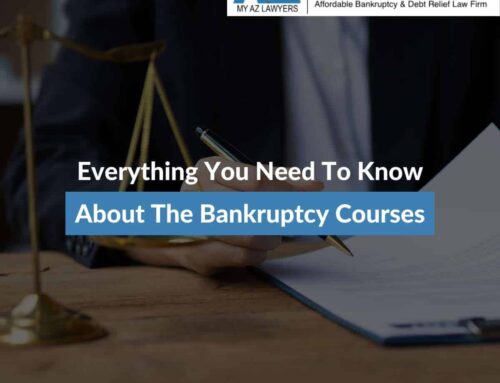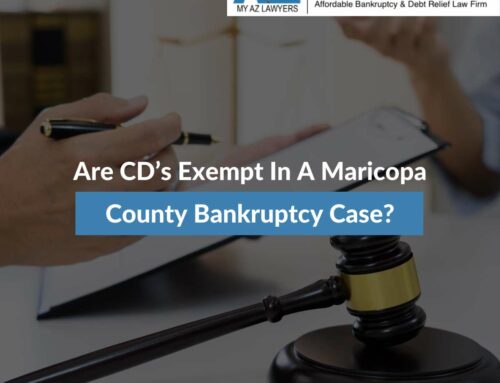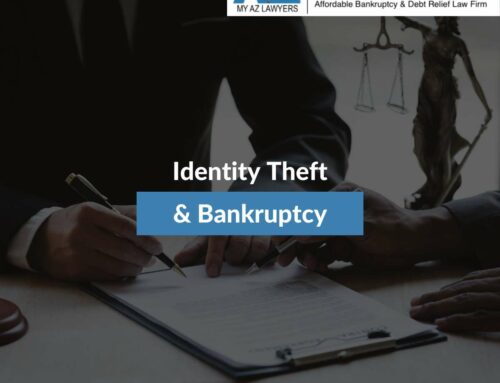Lien-Stripping Bankruptcy Scheme Lands Two Men in Prison
Bankruptcy is a powerful tool for debt relief, but there are strict laws and limitations to prevent people and businesses from abusing the system. Bankruptcy fraud is a felony that comes with strict criminal penalties. One of the latest examples of bankruptcy fraud carrying serious consequences comes to us from Indiana. Brian Fenner was sentenced to 77 months in federal prison and Dennis Birkley was sentenced to 5 years in federal prison for a bankruptcy fraud scheme. The sentencing comes after a conviction in 2023 on one count of conspiracy to commit wire and mail fraud, seven counts of wire fraud, six counts of mail fraud, and three counts of money laundering.
You may be wondering what type of actions these men took to be convicted of 17 felony charges and be sentenced to years in prison. They schemed to offer people struggling with debts “free bankruptcy.” If you’ve done any research into the bankruptcy process yourself, you know that the filing fees and attorney’s fees for a bankruptcy case aren’t cheap. From 2013 to 2016, Brian Fenner offered prospective bankruptcy debtors free bankruptcy in exchange for any vehicles they intended to surrender as part of the bankruptcy process anyway. While Fenner operated out of Indianapolis, some of his targets were on the West Coast and even in Arizona. Their cars would be towed to Fenner’s lot and he would charge a high towing fee to create the basis for a mechanic’s lien.
Fenner sold these vehicles to Dennis Birkley, the other man convicted in this scheme. They claimed to conduct these transactions through bankruptcy auctions, although these auction sales never actually occurred. In actuality, Birkley would use documents from the fraudulent auctions to obtain clean titles for the vehicles from the Indiana Bureau of Motor Vehicles. Then, Birkley would sell the vehicles to new customers and split the profits with Fenner. They earned over $1 million from this illegal scheme.
This situation just goes to show that you get what you pay for, even when it comes to bankruptcy lawyers. It also demonstrates that an offer that seems too good to be true probably is just that. In addition to several years in federal prison, Fenner and Birkley were both ordered to pay $49,054.84 in restitution.

More Common Examples of Bankruptcy Fraud
Bankruptcy fraud can be committed on a smaller scale than the situation described above. However, even if the fraud doesn’t result in millions of dollars in profits, the debtor can still face serious consequences if their actions are found to have been intentional. If it seems like an item simply slipped the debtor’s mind and their behavior wasn’t intentional, it is unlikely to result in criminal allegations. Common examples of bankruptcy fraud include:
- The debtor transferred a valuable and non-exempt asset to a friend or family member a few months before bankruptcy. This might be done to avoid having the asset go to creditors, or the transferee may promise to sell or transfer the asset back to the debtor after discharge. Here, the debtor would likely conceal this transfer from the bankruptcy trustee, which could have serious repercussions if the trustee discovered evidence of this.
- Instead of transferring the asset to a friend or family member, the debtor simply omitted the asset from their bankruptcy petition. This is to keep the trustee from seizing the asset and selling it at auction to pay off debts.
- The debtor made false statements at their 341 Meeting of Creditors. While more casual than other legal proceedings, this is still a hearing where a debtor is obligated to tell the truth. The debtor’s false statements may or may not be reflected in their bankruptcy petition.
- The debtor changed a document provided to the trustee, such as writing out details of luxury purchases from credit card statements. The debtor could also completely falsify a document requested by the trustee.
- In some situations, a bankruptcy filing can be an incident of identity theft. Here, the scammer will steal a person’s identification information and file a bankruptcy with their name. This is usually to protect an asset from repossession that the identity theft victim doesn’t own. The scammer (and the identity theft victim) will fail to appear at the 341 Meeting of Creditors and the case will be dismissed.
- Offering a bankruptcy trustee a bribe, whether or not the trustee accepts that bribe, is a form of bankruptcy fraud.
Some of these actions are criminal offenses, which can result in a stacking of offenses at trial and a significant period of incarceration. However, not every instance of bankruptcy fraud will result in federal prison time. Oftentimes, a bankruptcy case found to be fraudulent will be dismissed. When a case is dismissed, debts are not discharged. The debtor will also be disqualified from filing for bankruptcy again for a set period. The case itself might still be discharged but one or more debts could be denied, meaning the debtor would still have an obligation to repay their creditors. Or, the trustee could impose some other sanction based on the debtor’s specific circumstances.
Chapter 7 or Chapter 13
Oftentimes, bankruptcy fraud is committed so that the debtor can qualify for a type of bankruptcy for which they are ineligible. This is most often seen as a debtor with income too high to file under Chapter 7. A Chapter 7 bankruptcy debtor must be able to show the court that their income is not high enough to maintain a minimal standard of living and pay off their debts. Debtors whose household income (only counting a legal spouse and legal dependents) falls below the state median household income automatically qualify for Chapter 7 bankruptcy. Otherwise, a debtor will need to show they qualify for Chapter 7 bankruptcy with the means test. The means test provides several opportunities for a debtor to make misstatements or omissions that could be considered bankruptcy fraud. This is because the means test adds up the debtor’s mandatory expenses and deducts them from their average monthly income to find disposable monthly income. To bring down disposable monthly income and qualify for Chapter 7, the debtor could inflate certain expenses, categorize discretionary expenses as mandatory, and more. If you are using the means test to qualify for Chapter 7 bankruptcy in Arizona, you should have your situation reviewed by an experienced lawyer. For your free consultation with our firm, call 480-470-1504.
Avoid Confusion & Fraud Allegations with a Skilled Bankruptcy Attorney
Fraud charges, debt denials, case delays, and dismissal are just some of the consequences you could face if your bankruptcy petition is filed incorrectly. When you hire a bankruptcy attorney, they will do the heavy lifting in your case so you can focus on what’s important to you. Rest assured knowing what will happen to your assets if you file for bankruptcy and that you are covered if issues do arise. Our experienced Arizona Bankruptcy Law Attorneys make discharging debts simple and affordable. We have offices in Phoenix and Tucson and also offer free initial consultations by phone. When you’re ready to get started with your free consultation, contact us through our online form or call 480-470-1504.
Mesa Bankruptcy Law Office
4065 E University Dr #500
Mesa, AZ 85205
(480) 470-0005
Phoenix Bankruptcy Law Office
668 North 44th Street, Suite #300
Phoenix, AZ 85008
(480) 833-8000
Glendale Bankruptcy Law Office
My AZ Lawyers
20325 N. 51st Ave.
Suite #134
Glendale, AZ 85308
(623) 640-4945
Tucson Bankruptcy Law Office
My AZ Lawyers
2 East Congress St. Ste. 900
Tucson, AZ 85701
(520) 306-8729
Avondale Bankruptcy Law Office
My AZ Lawyers
12725 W. Indian School Rd.Suite E, #101
Avondale, AZ 85392
(623) 399-4222
Additional Information at:
Phoenix Bankruptcy Lawyer
Mesa Bankruptcy Lawyers
Phoenix DUI Lawyer
Chandler Bankruptcy Lawyer
Tempe Bankruptcy Lawyers
Vegas Zero Down Bankruptcy Attorney
Gilbert Bankruptcy Lawyers
Tucson Bankruptcy Lawyer
Arizona Zero Down DUI
Las Vegas Bankruptcy Lawyers
AZ Bankruptcy Lawyer





